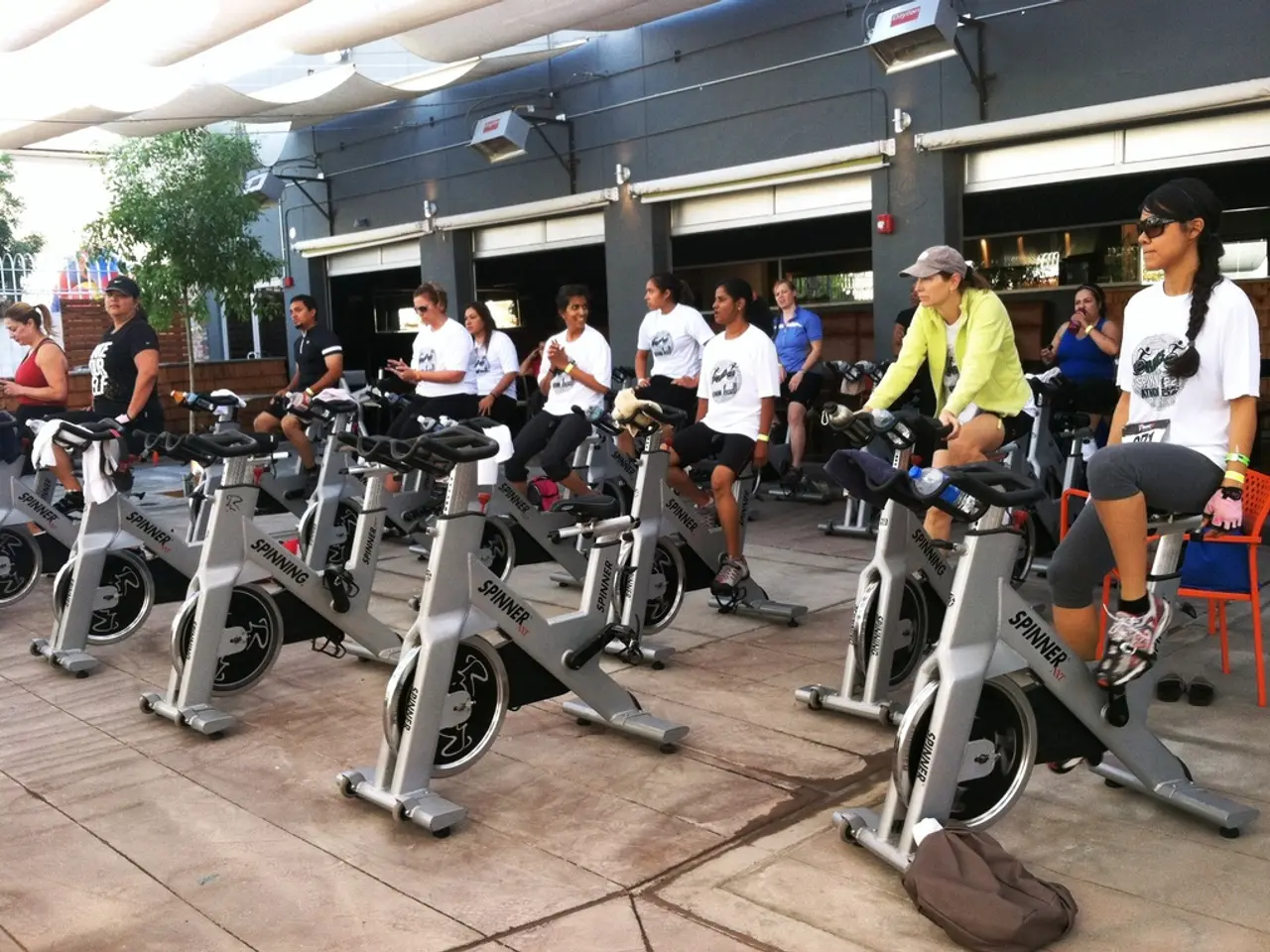Focusing on post-workout recovery for beginners: Four essential practices to optimize your overall well-being after physical activity
In the world of fitness, starting a new exercise regimen can often lead to delayed onset muscle soreness (DOMS), a common side-effect characterized by tight, tender muscles and achy joints. But fear not, for there are ways to speed up the recovery process and get back to your fitness journey stronger than ever.
Joe Williams, the studio manager at both F45 and FS8 in London, offers a four-point recommendation to aid in recovery after exercise. Hydration, sleep, walking, and rest are the cornerstones of his advice.
Hydration is crucial for maintaining energy levels and recovery from exercise. Williams advises drinking a minimum of two liters of water per day, not including teas or coffees. Proper hydration ensures that your body has the necessary fluids to repair and strengthen itself during and after workouts.
Sleep, too, plays a vital role in recovery. The body repairs and strengthens itself during sleep, making it an essential component of the recovery process. Ideally, one should aim for 7 to 8 hours of sleep per night, or top up any sleep debt with short naps. Williams also emphasizes the need for proper rest during the day for recovery.
Light movement, such as walking, encourages blood circulation to muscles and aids in the healing process from exercise. Williams recommends a minimum of a 50-minute power walk over a heavy workout for recovery. This light exercise increases blood flow and oxygen to fatigued muscles, helping to speed up the healing process from DOMS.
Active recovery, which includes light exercise to increase blood flow and oxygen to fatigued muscles, can also help speed up the healing process from DOMS. However, Williams warns against overtraining, as it can lead to loss of gains and potential weight gain. He advises against picking up weights the day after a workout and encourages his clients to take a day off from exercise to feel 10 times stronger in the next session.
Exercise strengthens muscles and bones, making the heart and lungs more efficient, and speeds up metabolism, helping burn more calories at rest. But it's important to remember that proper rest is essential for recovery, regardless of fitness goals.
Lastly, the body releases feel-good endorphins when exercising regularly. So, not only will you see physical improvements, but you'll also reap the benefits of improved mood and overall well-being.
In conclusion, following Joe Williams's four-point recommendation—hydration, sleep, walking, and rest—can help you recover from exercise more effectively, allowing you to continue to progress towards your fitness goals.
Read also:
- Competing strategies for addressing infertility come under scrutiny in the halls of Congress
- High school football in Ohio called off due to a legal dispute claiming players suffered violent hazing incidents
- Job opening at Save the Children organization
- Essential Techniques for Successful Snack Food Business Branding





